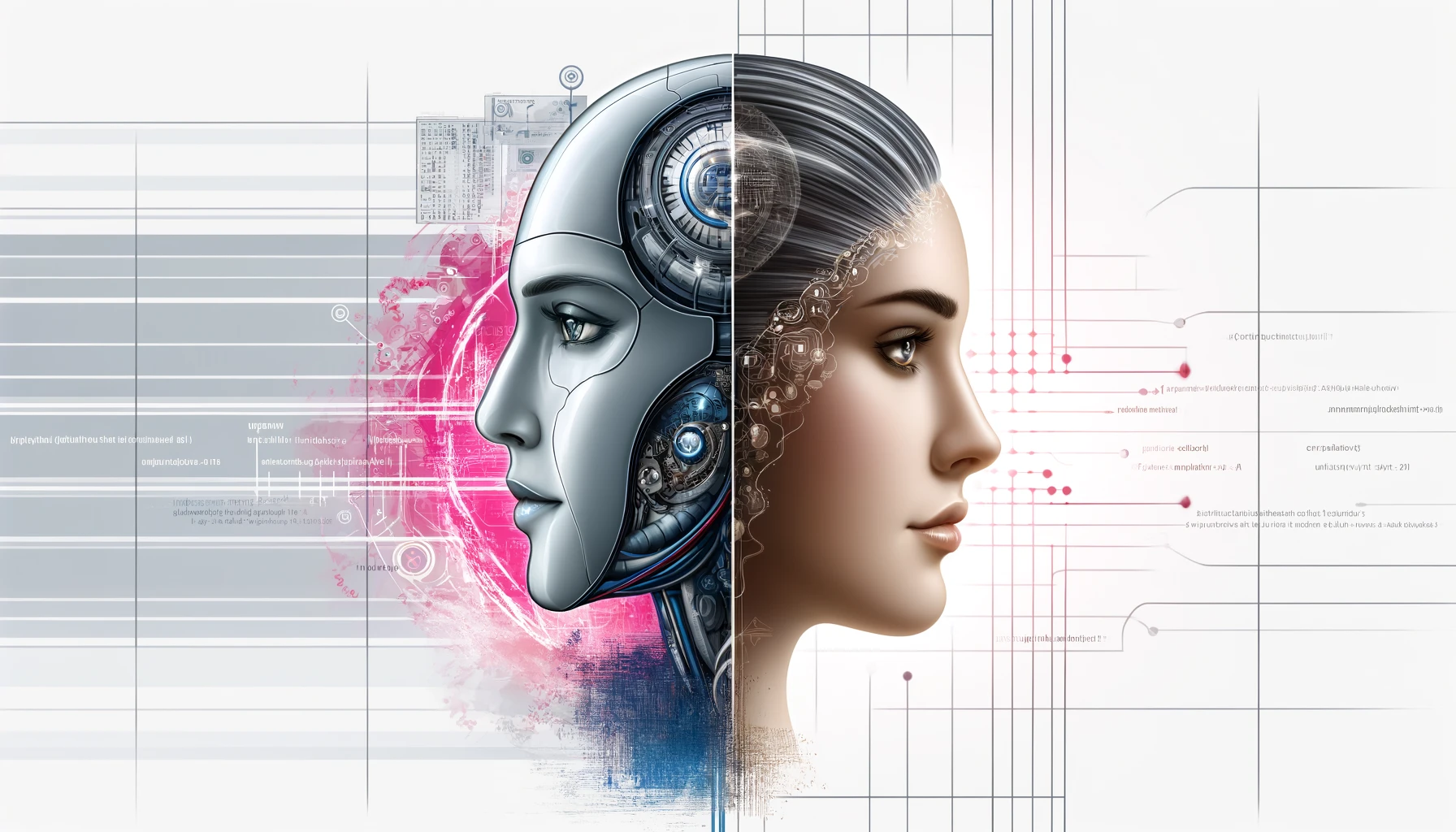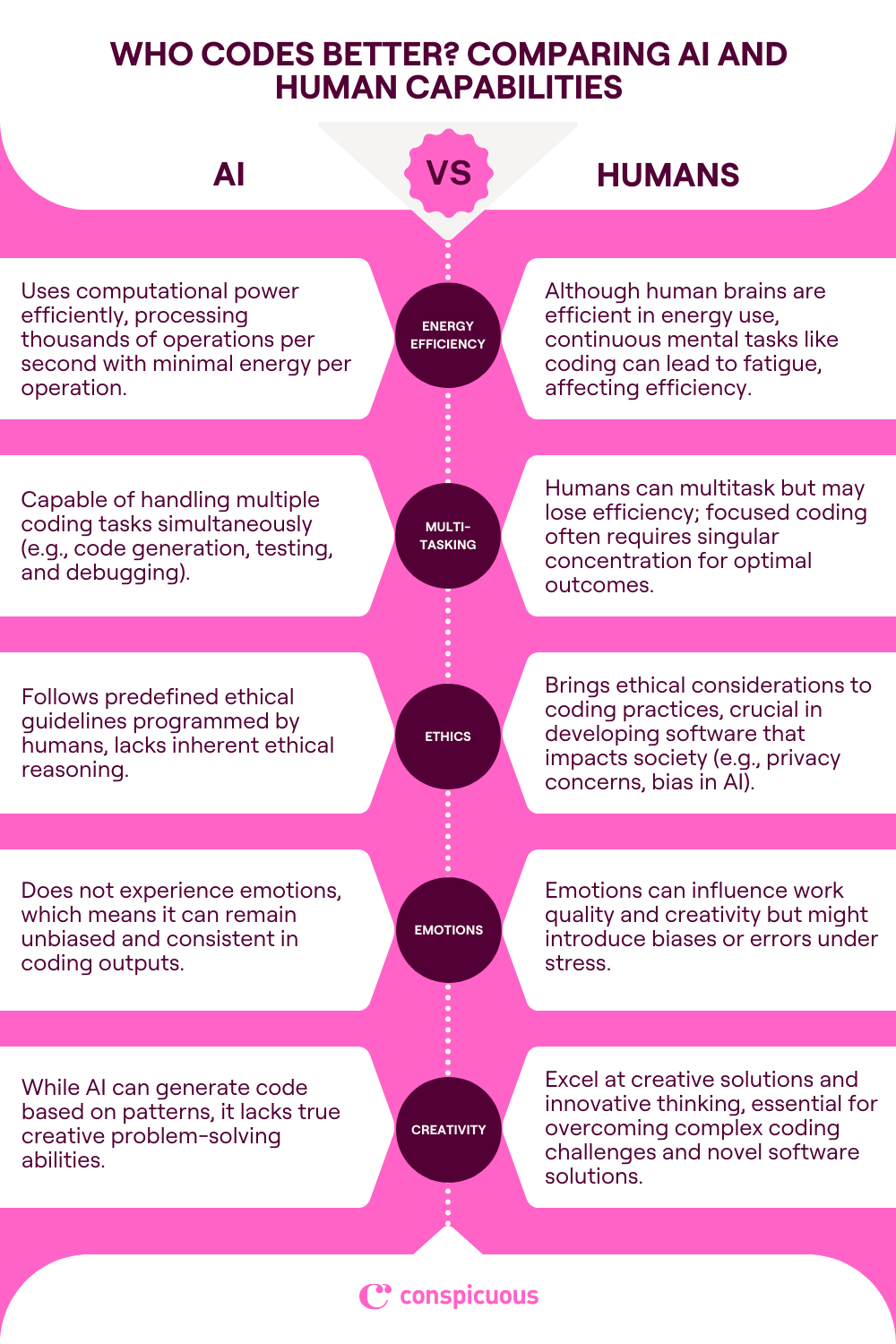
The rise of artificial intelligence (AI) has revolutionised many industries, including software development. ChatGPT, developed by OpenAI, is one of the most advanced AI tools available today, capable of generating human-like text and even writing code. But how good is ChatGPT at coding, really? Can it truly outperform human programmers? In this blog we delve into the strengths and weaknesses of ChatGPT in coding and compare its capabilities with those of human developers, incorporating insights from our recent Keeping Up With Conspicuous podcast episode featuring Chris Huntingford, Director of Digital Innovation at ANS.
Strengths of ChatGPT in Coding:
- Speed and Efficiency: ChatGPT can generate code snippets quickly, which can be particularly useful for repetitive tasks or boilerplate code. This can significantly speed up development time and reduce costs.
- Assistance with Routine Tasks: The AI excels in generating specific routines, small algorithms, and subroutines. As Chris Huntingford noted in our podcast, "AI will build on your role and take away those horrible manual things that you have to do all the time."
- Debugging and Error Fixing: ChatGPT has shown competitive performance in automatic program repair (APR). It can identify and fix bugs in code, sometimes outperforming traditional APR methods.
- Learning and Adaptation: ChatGPT can help break down complex projects into manageable chunks and assist with coding those chunks. This makes it a valuable tool for developers who need to organise and streamline their workflow.
Weaknesses of ChatGPT in Coding:
- Complexity and Nuance: While ChatGPT can handle simple tasks well, it struggles with more complex programming challenges. It often fails to understand the nuances required for sophisticated applications, leading to incomplete or incorrect code.
- Error-Prone Outputs: The AI can produce code that contains errors or is inefficient. It may also miss critical operations, especially in larger projects. This necessitates human oversight to ensure the code's accuracy and functionality.
- Security Concerns: Using ChatGPT for coding can introduce security vulnerabilities. The AI might generate code that is susceptible to exploits, which could be a significant risk in production environments.
- Lack of Creativity and Problem-Solving Skills: Human programmers excel in creative problem-solving and understanding complex requirements. ChatGPT, on the other hand, follows patterns and lacks the deep understanding that experienced developers bring to the table.
Comparative Analysis: AI vs. Human Coders

Several studies and experiments have compared the performance of ChatGPT with that of human programmers. Key findings include:
- Performance in Competitions: In the IEEExtreme programming competition, human programmers outperformed ChatGPT in solving a wide range of complex problems. This highlights the human edge in handling intricate and diverse coding challenges.
- Code Quality: While ChatGPT can generate functional code, the quality often falls short compared to human-written code. Human developers can produce more efficient, readable, and maintainable code, especially for large-scale projects.
- Collaborative Potential: AI tools like ChatGPT are best used as assistants rather than replacements for human programmers. As Chris Huntingford emphasised in our podcast, "AI will not take your job, the person making the best use of it will."
The Future of Coding with AI
During our Conspicuous podcast, Chris Huntingford shared valuable insights about the future of coding and AI, including integration of AI with low-code platforms, the importance of technical skill enhancement, and the prevalence of AI literacy. Catch up and watch the full episode here.
Conclusion
ChatGPT is a powerful tool that can significantly enhance the coding process by automating routine tasks, speeding up development, and assisting with debugging. However, it is not yet a replacement for human programmers. The AI lacks the deep understanding, creativity, and problem-solving skills that experienced developers bring to the table.
As Chris Huntingford emphasised, the future of coding lies in the synergy between human skills and AI capabilities. Developers who can effectively leverage AI tools while maintaining their technical expertise will be in high demand. For now, the best approach is to use ChatGPT as a complementary tool, leveraging its strengths while relying on human expertise for complex and nuanced coding tasks.
By balancing the capabilities of AI with human skills, we can create more efficient and effective development processes, ultimately leading to better software and innovative solutions. At Conspicuous, we are committed to staying at the forefront of AI advancements, ensuring our team and clients are well-prepared for the future.